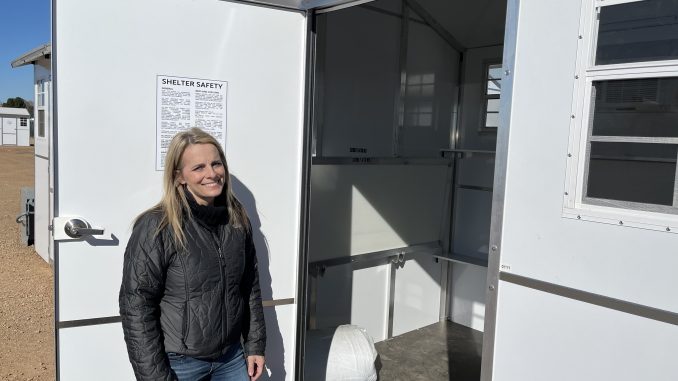
Before the Board of Supervisors heard proposals for Butte County’s allotment of American Rescue Plan Act (ARPA) funds, Chairman Bill Connelly expressed some reservations.
“I’m worried about spending every bit of the money,” he said at the beginning of the Aug. 9 meeting, citing concerns of potential cost overruns from existing ARPA projects the board approved last October.
Connelly also stated his preference for getting through the 21 proposals in front of the supervisors as quickly as possible: “I’m all for getting the meeting over.”
The Oroville-area supervisor got both of his wishes, as the panel denied four of the proposals, reserving nearly $2.9 million in ARPA funds, and did quick work in unanimously approving the rest before adjourning to closed session by 11 a.m.
The U.S. Treasury delivered ARPA funds to communities struggling in the wake of the COVID-19 pandemic to be used to “replace lost public sector revenue; respond to the far-reaching public health and negative economic impacts of the pandemic; provide premium pay for essential workers; [and] invest in water, sewer, and broadband infrastructure.”
Butte County’s total ARPA award is $42.5 million. The first round of local allocations in October totaled $27.2 million for 24 projects. The 17 proposals approved at this meeting will account for around $12 million, potentially leaving more than $4 million for the board to consider allocating in March 2023.
Approved proposals Aug. 9 included $51,000 for “Bridging Digital Divide In Butte,” a project to make available to residents countywide 50 laptops, 25 tablets and 35 WiFi hotspots via county libraries; $500,000 for a temperature-controlled storage facility for Butte County Public Health; and $5.5 million to make up for shortfalls in county employee wages (due in part to the results of a recent classification/compensation study).
The unapproved proposals included $1 million for a variety of enhancements for Feather Falls Trail (for both access and search-and-rescue purposes) and $157,440 for a Mobile Voter Assistance Center; supervisors tasked staff with returning additional information for reconsideration in March.
The only vote that featured much debate was for a $1 million feasibility study for the design/construction of Rock Creek/Keefer Slough bifurcation project, to divert stormwater for better drainage. With the Department of Public Works concluding that the actual construction of the project wasn’t feasible for funding under ARPA allocation, Connelly suggested holding off until project funding could be secured.
Supervisor Debra Lucero suggested that, in light of the federal Inflation Reduction Act that just passed in the Senate and its provisions for infrastructure improvements, having a completed study in hand would be crucial for accessing those funds.
Fellow Chico-area Supervisor Tami Ritter posed, “What is the county’s liability if we continue to build in an area that can’t support it?”
The proposal failed, 3-2, with the Chico progressives dissenting.
Shelter report
One of the ARPA proposals from the county’s first round of funding included $1.7 million for the Pallet emergency shelter in Chico. During this meeting, Amber Abney-Bass, director of the Jesus Center (tasked with managing the Pallet site, which opened April 25), gave the board an update on the shelter.
Abney-Bass praised the various partners contributing to the operation, including the county’s Behavioral Health and Employment and Social Services departments as well Haven of Hope on Wheels (which provides shower/laundry services), Ampla’s mobile health program and the Chico Homeless Animal Outreach.
She shared that during the first three months, the shelter served “175 unique individuals,” 61 percent of whom report experiencing chronic homelessness. Of those, 37 percent suffer from a chronic medical condition, 42 percent from mental-health issues and 42 percent from substance-use disorders (some have multiple issues). She stressed that the Pallet shelter program “is a long-term project,” and with so many factors at the root of homelessness and impacting guests at the shelter, “it’s going to take time for them to unpack that.”
Abney-Bass also reported the formation of a community council made up of four shelter residents, each serving for one quarter before a new group is elected. Council members have to be residents at the shelter for 30 days or more to be eligible.
“I see a community developing out there,” she said.
There are currently 149 people living in Pallet shelters (some in double occupancy), with 41 units open.
For the most part, the board was complimentary of the shelter staff and the city of Chico’s efforts. Supervisor Tod Kimmelshue said, “I think it’s money very well used,” and that he was “doggone proud” of the work that’s been done.
Supervisors Doug Teeter and Connelly were much more measured in their praise, thanking them for their work but criticizing this kind of funding.
Teeter, who voted against the proposal, said, “I didn’t give you money, so I don’t want you thanking me for that,” adding that by funding homeless programs to this level, he feels “Middle America” is being left out.
Connelly expressed concern to Abney-Bass that the chronically homeless are “just going to use you,” to which she responded that, while she shared some of the supervisors concerns, “we do see success.”




Be the first to comment